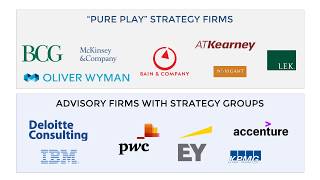
Agricultural consultants assist farmers and ranchers with a wide range agricultural issues. Their advice covers a range of agricultural issues, including the production and management of livestock and water resources, as well the protection of the natural environment. They also provide advice on business issues, such as waste management and estate planning. Many agricultural consultants have a specialization in one area of farming such as agritourism. Here are some resources to help you find a career in agriculture consulting.
Job description
The role of an agricultural advisor is broad and may include advice to farmers on topics such as machinery, farming methods, safety, and pest management. Agricultural consultants may assist farmers with business analysis as well as participating in meetings, seminars, and group sessions. They might also manage farms for absentee owners. Read on to find out the full job description. Agriconsultants may provide expert advice for farmers or conduct research to improve the agricultural process.
To be successful as an agricultural consultant, one must have excellent communication skills. These consultants are responsible for research, management, and updating information. They may also travel during their work hours. They work Monday through Friday. But, it is possible that they might need to work nights or weekends during busy periods. They might also own their own farms. There are many ways that agricultural consultants can progress their careers, depending on their experiences and the organization they work for.

Education required
A wide variety of industries employ agricultural consultants, including agriculture, food, farming, and environmental services. To be eligible for this job, one must have a degree either in soil/earth science or another related field. A previous agricultural experience is also desirable. Further study in niche areas may be required for international work. Agricultural consultants also have the option of opening their own business.
The education required for an agricultural consultant varies, but usually requires at least a bachelor's degree from an accredited university. It is highly recommended that you have a master's degree in an area related to agriculture, such as natural resources management, environmental science, or forestry. However, postgraduate business degrees do not give a consultant an advantage. As a general rule, the education required for an agricultural consultant is similar to that of other agricultural careers.
Experience required
The primary duties of an agricultural consultant are to provide advice to clients regarding various business issues. The area of expertise a consultant works in will vary depending on their specific field. They may be skilled in financial, human relations, and personnel management. They may also be involved in issues related to production and operations, and environmental and/or climatic problems. Candidates must be able to communicate and interact well in this diverse job role. To be a successful consultant in agriculture, you must also have a thorough knowledge of the business aspects of agriculture.
You need a master's degree in agricultural sciences to be able to work as an agricultural consultant. However, it is possible to also open a business or apply for work at a multinational. In any case, experience in the agricultural industry will help you in building a strong reputation. For jobs in general recruitment sites, agricultural magazines, or agricultural journals, you can apply to start your business. Numerous websites offer consulting services in agricultural fields.

Salary
As an agricultural consultant, you need to be knowledgeable in many areas, including business, human relations, and agriculture. These professionals often work with clients located in different parts of the world and may be able to focus on many issues such as production and operation. Due to their vast knowledge, an average agricultural consultant may make $94,745 annually. This career field is expected to grow by 1% between now and 2029. It is therefore one of most popular occupations in the United States.
As an agricultural consultant, you will need to demonstrate your experience to potential clients. Agricultural consultants can work for consulting firms, or on their own. Clients are interested in seeing that the consultants have had different job experiences and have advanced up the career ladder. Having experience in specialized areas is also a plus. The government and whereabouts will affect the growth potential. You can charge more if you have some experience in the agribusiness industry.
FAQ
What are some of the advantages to being a Consultant?
Consultants have the ability to choose when and on what they work.
This means that you are able to work from wherever you're at any time.
It means that you can change your mind easily without worrying about losing your money.
Finally, you can control your income and set your own schedule.
Why would a company pay a consultant?
Consultants offer expert advice to help improve your business' performance. They don't sell products.
Consulting helps companies make better decisions. They provide sound analysis and offer suggestions for improvement.
Senior management teams often have consultants working closely with them to help them understand their needs.
They also provide leadership training and coaching to ensure employees develop the skills necessary to perform at peak levels.
They can help businesses reduce costs, streamline processes, and increase efficiency.
What skills are necessary for consulting?
As a consultant, you should have both strong interpersonal skills and analytical skills. This is because you could be asked questions or not know what you are doing. You will need to learn how you manage people and solve problems quickly.
You also need to have excellent communication skills. Most clients expect an answer within 24 hours. If they don’t hear back, they assume that you aren’t interested. It's important, therefore, to always keep them informed and ensure they understand what is going on.
Do I need a degree to be a consultant?
It is best to study a subject well and then practice what you have learned.
Learn how to be a great consultant by studying now!
A degree without relevant experience may make it difficult for you to be hired. You could still apply if you are able to show that you have the same subject knowledge as the people who were hired.
Employers are always looking for people with real-world knowledge.
What is the difference in a consultant and advisor?
A consultant is an advisor who gives information on a particular topic. Consultants offer solutions to problems.
Consultants work directly with clients to help them reach their goals. Clients are referred to advisors through books, magazines and lectures.
What contracts are available for consultants?
When consultants are hired, they sign standard employment agreements. These agreements include details such as how long the consultant will stay with the client, what he/she can be paid, and other important information.
Contracts may also include details about the specific areas of expertise that the consultant is going to be focusing on as well as how they will be compensated. The agreement might state that the consultant will conduct training sessions, workshops or webinars.
Sometimes, the consultant just agrees to complete certain tasks within a defined timeframe.
In addition to standard employment agreements, many consultants also sign independent contractor agreements. These agreements allow the consultant to work independently but still receive payment for his/her efforts.
Statistics
- On average, your program increases the sales team's performance by 33%. (consultingsuccess.com)
- "From there, I told them my rates were going up 25%, this is the new hourly rate, and every single one of them said 'done, fine.' (nerdwallet.com)
- Over 62% of consultants were dissatisfied with their former jobs before starting their consulting business. (consultingsuccess.com)
- 67% of consultants start their consulting businesses after quitting their jobs, while 33% start while they're still at their jobs. (consultingsuccess.com)
- According to statistics from the ONS, the UK has around 300,000 consultants, of which around 63,000 professionals work as management consultants. (consultancy.uk)
External Links
How To
How to find the best consultant
The first thing to do when looking for a new consultant is to ask yourself what you want from him/her. Before you begin searching for a consultant to help you, you should be clear on your expectations. Make a list of everything you think you might need from a consultant. This list could include technical expertise, project management skills, communication skills and availability. After you have listed your requirements, it might be a good idea to ask colleagues and friends for their recommendations. Ask them if they had any bad experiences with consultants previously and see how their recommendations compare with yours. You can also do some online research if you don't know of any. You can post reviews on your previous work experiences on many websites like LinkedIn, Facebook and Angie's List. Look at the ratings and comments left by others and use this data as a starting point for finding potential candidates. Once you have a short list of candidates, contact them to arrange an interview. Talking through your requirements during the interview is a good idea. Ask them questions about how they can assist you in achieving those goals. It doesn’t matter who recommended them to you, just make sure they understand what you are trying to achieve and how they can help.